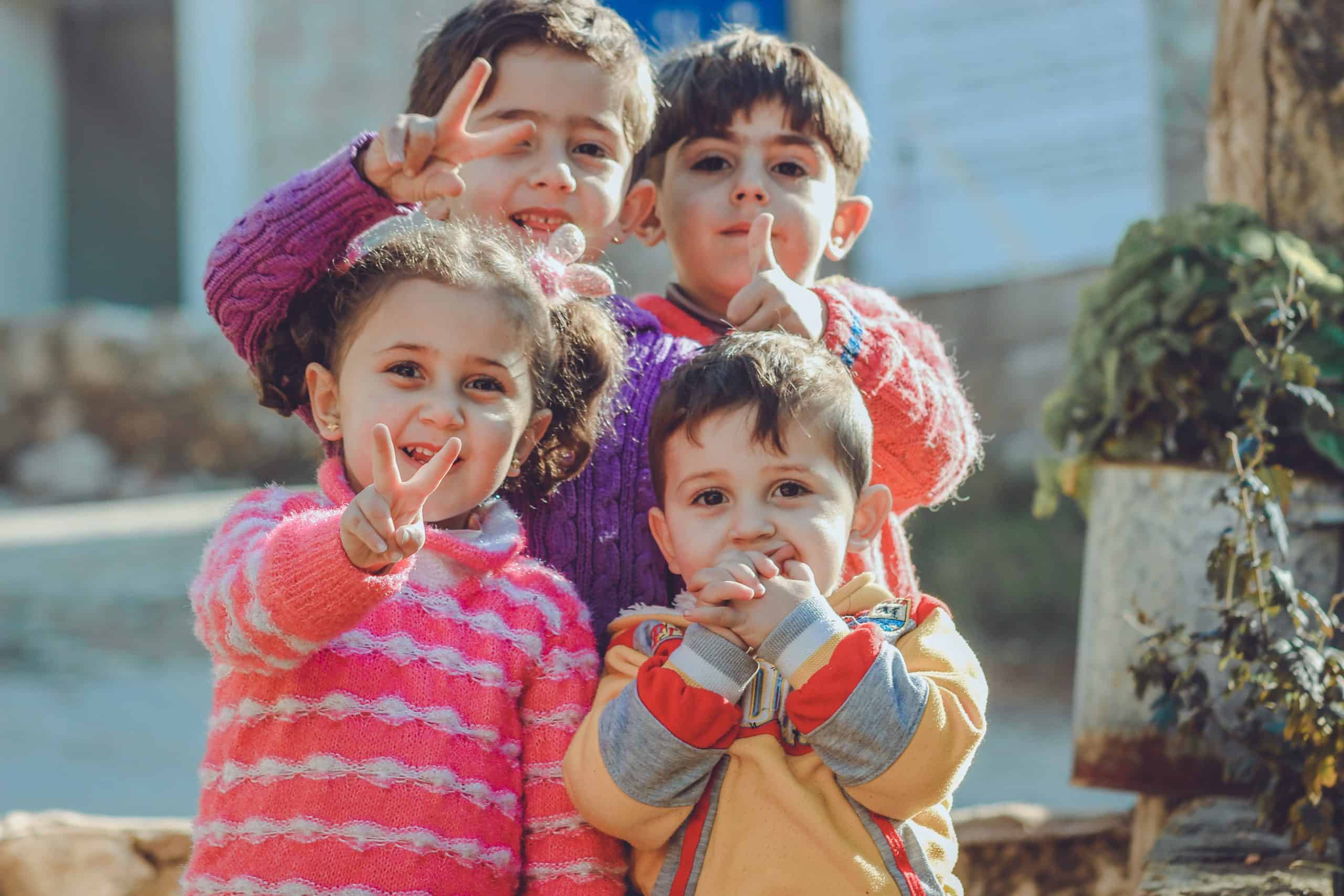How does Islam view adoption and what is Kafalat Yateem?

Islam places significant emphasis on looking after orphans and vulnerable children, considering it a highly virtuous and meritorious act. Several teachings in the Quran underscore the importance of caring for orphans and treating them with kindness and compassion.
In the Quran Allah Almighty says:
“Righteousness is not that you turn your faces toward the east or the west, but [true] righteousness is [in] one who believes in Allah, the Last Day, the Angels, the Book, and the Prophets and gives wealth, in spite of love for it, to relatives, orphans, the needy, the traveler, those who ask [for help], and for freeing slaves.” Surah Al-Baqarah (2:177)
Exemplary Role Model
Prophet Muhammad (peace be upon him) set a perfect example of kindness and compassion towards orphans. He himself was an orphan, and throughout his life, he treated orphaned children with love and respect.
Incentives and Rewards
The Prophet (peace be upon him) said in a Hadith narrated by Abdullah bin Amr:
“I and the person who looks after an orphan and provides for him, will be in Paradise like this,” putting his index and middle fingers together. (Bukhari)
Obligation of Sadaqah and Zakat
Islamic teachings encourage giving Sadaqah (voluntary charity) and Zakat (obligatory alms) to support the less fortunate, including orphans.
Equitable Treatment
In Surat an-Nisa (4:2-3), Allah warns against unjust treatment of orphans regarding their property and wealth.
Give orphans their property, and do not exchange the bad for the good, and do not eat up their property by mixing it with your own. This surely is a mighty sin. (4:2)
Reward for Kind Treatment
Prophet Muhammad (peace be upon him) mentioned that those who care for orphans will be close to him in Paradise. In another Hadith, he said,
“The one who strives to help the widows and the poor is like those who strive in the cause of Allah.” (Muslim
Community Responsibility
Islam teachings emphasise that caring for orphans is not an individual duty but a communal responsibility. The entire Muslim community should work together to support and protect vulnerable children.
Overall, Islam promotes a strong sense of social responsibility, especially towards orphans and vulnerable children. Muslims are encouraged to show compassion, love, and support to these children, not only by providing for their material needs but also by offering emotional and psychological care. By doing so, they seek the pleasure of Allah and aspire to follow the example set by Prophet Muhammad (peace be upon him) in his interactions with orphans.
Adoption
In Islam, adoption is viewed differently than in some other cultures or legal systems. Islamic law recognises the importance of caring for orphaned and abandoned children, but it also has specific guidelines and principles regarding adoption.
In Islam, the term “adoption” (or “tabanni”) is not used in the same way as in secular contexts. Instead, the practice is referred to as “kafala” (كفالة), which translates to “custody” or “sponsorship.” Kafala allows a Muslim family to take care of and provide for an orphaned child, but it does not change the child’s lineage, inheritance rights, or the child’s relationship with their biological family.
Islam came to reform society, to bring justice and rid the community of myths, delusions and harmful practices. It confronted these head on. In Surat al Ahzab Allah Almighty specifically mentioned that it was not permissible to give an adopted son the same rights as real sons:
Allah has not made for any man two hearts in his chest cavity, nor did he make your wives whom you subjected to Zihar, your mothers, nor did he make your adopted sons your (real) sons. That is (merely) a word uttered by your mouths. And Allah says the truth and He shows the (right) way. (33:4)
Here Allah is clarifying that one cannot change a child’s lineage. If you change their name, you are obscuring that reality. Their genetic make up does not alter when they take your name, nor does their lineage. Therefore Allah Almighty wants us to protect their lineage by not changing their surname. He said:
Call them by (the name of) their (real) fathers; It is more equitable in the sight of Allah. And if you do not know their fathers, then they are your brothers in faith and your friends. There is no sin on you in the mistake you make, but in that which you do with intention of your heart; and Allah is Most-Forgiving, Very-Merciful. (33:5)
Kafalat al-Yateem
Islam encourages us to care for children who do not have parents or cannot be looked after by their parents for any reason, this is called kafalat yateem.
In the UK, we have fostering and adopting but adopting is very similar to kafalat yateem, so is not prohibited in Islam. Essentially you become a guardian to that child.
However, Islam clarifies that the child you take into your care is not the same as a child you have given birth to. Therefore the status and rights of that child are different from your own child in three respects:
- They do not become mahrams
- They cannot take your surname
- They are not your natural heirs, therefore they do not automatically inherit from you. But you can include them in your wasiyyah (in the bequest which is a maximum of a third of one’s estate, as the rest is distributed according to the Shariah).
Mahramship
If a couple bring up boys in their home who are not related to the mother by blood, she would still have to wear hijab in front of them after they reach puberty. They would not be her mahrams if she wanted to go for Hajj.
If she can breastfeed them, then they become mahrams from breastfeeding.
Inheritance
The child could be gifted any amount while their guardians are alive, but they would only be able to inherit up to a maximum of a third of the guardian’s estate if they were specified in their will.
This is an important distinction because the Shariah protects 5 rights and one of these is nasab (lineage). Therefore ensuring that lineage is not obfuscated is important and it ensures that the rightful heirs receive what is due to them.
Zayd bin Haritha
Zayd bin Haritha had been adopted by the Prophet (peace be on him) before the revelation of the ayah about adoption. He had changed his name to Zayd bin Muhammad. However after Allah revealed that this was not allowed, and you could not give your fostered child your surname, Zayd’s name was changed back to Zayd bin Haritha.
In order to reinforce the point that fostering does not create a new blood connection, Allah Almighty commanded the Prophet (peace be on him) to marry the wife Zayd divorced, as it was unheard of for man to marry his claimed daughter in law, even after divorce.
This was to demonstrate than an adopted son is not the same as a son by birth.
Questions on adoption
Q What is the oldest age that you can give breast milk to a child?
Maximum aged 2 or below.
Q Is it permissible to use medication to produce milk?
Yes.
Q How many times do you need to feed the child breast milk? And what volume of milk?
There are few opinions; either 5 consecutive feeds, or just a drop of milk or one meal.
Q Do you have to keep the child’s birth surname or is it better to give them your surname?
Yes. They can keep their birth surname as their middle name. You don’t have to keep the child’s surname as it causes problems in daily life having a different name to the rest of the family, it is more practical to have the same surname.
Q How does the adopted child inherit?
You can only gift in the extra 3rd of your will, better to give in the 3rd in the will rather than gift in life, you can give how much we want to give but not more than a third, so you can match the amounts of the other inheritors if you wish.
We ask Allah to enable us to follow divine revelation and do our best to look after the vulnerable in our community. Ameen.
Shaykh Haytham Tamim
- The forces of Allah and the fate of the falsifiers
- Climbing the stairs: How to continue your spiritual journey post-Ramadan
- How Allah strengthens the hearts of believers
- Why should you follow up one good action with another one?
- Don’t be a Ramadani person – Be a Rabbani person.
Recommended Posts

The forces of Allah and the fate of the falsifiers
April 26, 2024

How Allah strengthens the hearts of believers
April 19, 2024

